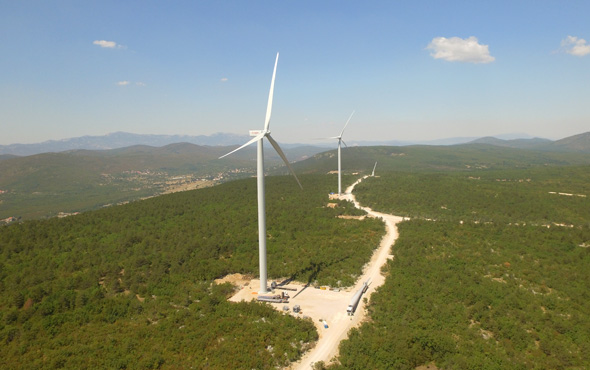Opinion
A Wake-Up Call for Israeli Startups: the Energy Sector Is Ripe for Disruption
Israel is a prime candidate to lead the energy revolution, thanks to the advanced technologies of its prosperous tech sector and its reputation for introducing outside-the-box solutions
Despite the energy sector being disrupted worldwide and showing promising growth, Israeli startups have yet to shine in this industry.
In this article, I will examine what drives this sector’s long-anticipated disruption and why now is such a critical time to introduce radical changes to this traditional field.
In the near future, this will have seemed like a distant dream: a handful of big power plants distributing energy to consumers throughout the land in a simple one-way journey from power plant A to consumer B. Though perhaps nostalgic, this status-quo has already begun to transform into a whole new order where consumers of energy are also its producers and fossil power plants are replaced by backyard wind turbines and solar cells.
 Wind turbines. Photo: Enlight Renewable Energy Ltd.
Wind turbines. Photo: Enlight Renewable Energy Ltd. This progression in the energy sector has long been anticipated, and the advanced technologies enabling it are finally here, from artificial intelligence and machine learning algorithms to renewable energy solutions. Then why are we not seeing the fourth industrial revolution of the energy sector? Because, with new horizons, come new challenges and in the energy sector, they take the form of four Ds: decarbonization, democratization, decentralization, and digitalization.
Decarbonization: new business opportunities
While burning fossil fuels may have been the standard in the past, a focus on climate and pollution reduction has driven the energy sector towards technologies that enable renewable energy resources. As more and more governments today incentivize businesses to produce clean energy, renewable energy resources begin to take up a significant portion of energy production. To name a few examples, 65% of energy production in Canada is based on renewables, 40% in Germany, and a whopping 80% in Brazil.
Democratization: from consumers to prosumers
Democratization rapidly turns the regular consumer into a prosumer. Soon, anyone will be able to produce energy in their own backyard using wind turbines and solar panels and even start their own home business supplying energy to neighbors. This dramatic shift has the potential to undermine the business viability of traditional electricity companies, requiring a whole set of new business models on both ends, based on innovative technologies that provide novel ways to store energy, price excess supply, and forecast supply and demand to enable smarter consumption and distribution.
Decentralization: a bi-directional flow of energy
Moving away from the one-way electric grid, where electricity goes from power stations to consumers, present-day electric grids have become a huge, complex web of different production types, both renewable and nonrenewable, coming from different small and large-scale producers. Countless new connections are being added to the grid continuously, including solar panels, electric charging stations, and other internet-of-things (IoT) devices.
From a market perspective, these changes make it harder to get a grasp on supply and demand. The grid now necessitates complex predictive algorithms, such as weather forecasting, to name one example, in order to provide reliable electricity by a decentralized grid of non-reliable and unstable energy sources.
Digitalization: going beyond the meter
Before the era of IoT, energy consumption data was limited to a simple electric meter reading. Now, smart meters in buildings can provide real-time data on energy consumption and production in great detail. The data collected is already massive and by 2022, an estimated 10.5 billion smart meters will be connected worldwide. These numbers would be higher if it not for data protection regulations and cybersecurity concerns—an area that requires its own dedicated technological attention.
Thanks to this stream of digital resources, we are armed with huge amounts of data that is currently not being leveraged. We need to go beyond the meter, and leverage AI to optimize current services and provide new, innovative endpoint services to consumers. These new services could include predicted device maintenance, car charging stations, and other smart energy solutions, with network visibility being a crucial requirement taking into account the enormous amount of connected devices.
- Israel's Approach to Energy Is Suicidal, Says Former Head of U.N. Framework on Climate Change
- From Sea Waves to Processed CO2 Emissions: 5 Israeli Companies Developing Clean Energy Solutions
- From Edible Shot Glasses to Biodegradable Plastics: Eight Companies Reducing Plastic Waste
Today’s energy sector is begging for change and there are countless opportunities to innovate and develop new ways of distributing and consuming energy. From developing new IoT devices for smart energy solutions to new business models for consumption-based incentives or algorithms that balance supply and demand in the ever-changing grid—innovators around the world are working diligently to find solutions to the energy sector’s biggest challenges.
Israel is a prime candidate to lead this revolution, thanks to the advanced technologies of its prosperous tech sector and its reputation for introducing outside-the-box solutions.
Lisa Cohen is an investment director at Frankfurt-listed energy company Innogy SE’s Berlin-based Innogy Innovation Hub.



